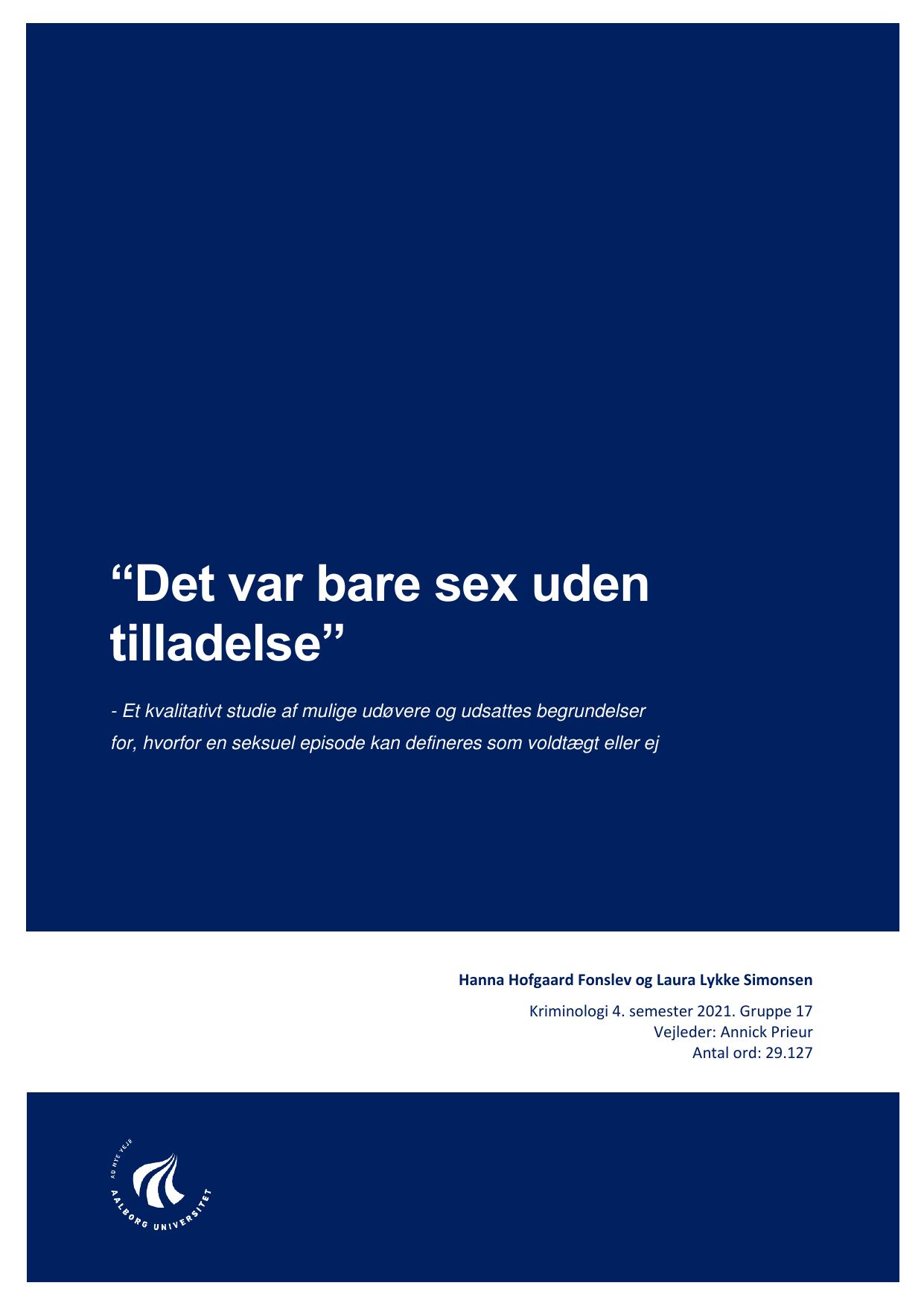
"Det var bare sex uden tilladelse" - Et kvalitativt studie af mulige udøvere og udsattes begrundelser for, hvorfor en seksuel episode kan defineres som voldtægt eller ej
Oversat titel
"It was just sex without permission" - A qualitative study of possible offenders and victims' reasoning behind defining a sexual episode as rape or not
Forfattere
Semester
4. semester
Uddannelse
Udgivelsesår
2021
Afleveret
2021-06-06
Antal sider
83
Abstract
This thesis examines people's reasoning behind defining a sexual episode as rape or not. We explore this by examining how doubt and disagreements can arise in these situations. We study whether the involved parties' definitions of the sexual encounter align with the new rape law in Denmark regarding sexual consent. The thesis has a constructivist-interactionistic understanding, which complements the theory of Narrative criminology used throughout the thesis. The thesis also utilizes Neutralization Techniques and Sexual Script Theory as part of the analytical approach. The study is based on qualitative interviews to explore the stories of people who have experienced doubt or disagreement about the nature of a sexual encounter. We have conducted nine interviews with both male and female participants. The participants include individuals whose boundaries have been crossed and individuals who might have crossed or been accused of crossing sexual boundaries. In our thesis, we found that defining these types of sexual encounters is both complex and challenging for the involved parties. How the informants define their experiences is affected by how they acted before, during, and after the sexual encounter. Furthermore, the use of force affected whether they defined the situation as rape. We also identified lesser-known factors in our data, such as "relationship consent" and "persuaded consent", which affected how our informants viewed their experience. We also found that our informants may choose to distance themselves from either a "rape victim" or "rapist" identity through their narrative and different Neutralization Techniques. Others can also either confirm or disregard the informants' identities as either a rape victim or a rapist. We also discuss how our informants view the new law about sexual consent in relation to their own experience. Based on the informants' experiences, we discuss whether the new law about consent contributes to a change of culture and, therefore, the conversation around rape and sexual conduct. However, the new law can face challenges when dealing with complex situations, such as "persuaded consent". We argue that the law faces difficulties in making a difference in practice but can work as a deterrent.
Emneord
